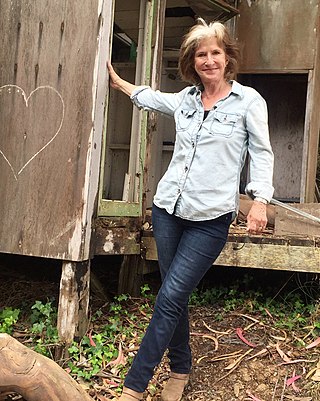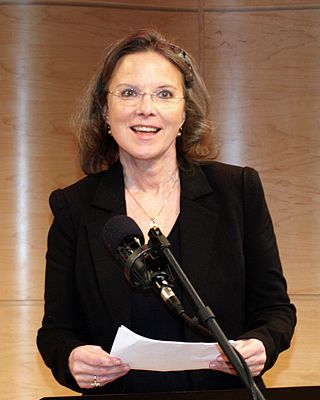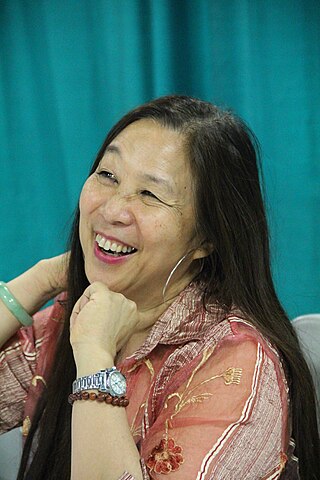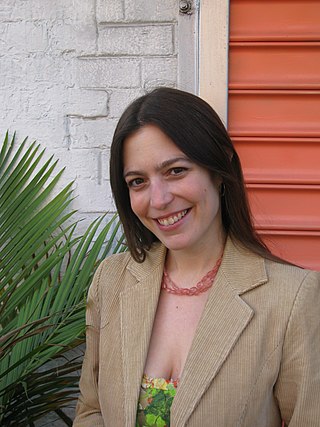
Rae Armantrout is an American poet generally associated with the Language poets. She has published more than two dozen books, including poetry and prose.

Susan Howe is an American poet, scholar, essayist, and critic, who has been closely associated with the Language poets, among other poetry movements. Her work is often classified as Postmodern because it expands traditional notions of genre. Many of Howe's books are layered with historical, mythical, and other references, often presented in an unorthodox format. Her work contains lyrical echoes of sound, and yet is not pinned down by a consistent metrical pattern or a conventional poetic rhyme scheme.

Rita Frances Dove is an American poet and essayist. From 1993 to 1995, she served as Poet Laureate Consultant in Poetry to the Library of Congress. She is the first African American to have been appointed since the position was created by an act of Congress in 1986 from the previous "consultant in poetry" position (1937–86). Dove also received an appointment as "special consultant in poetry" for the Library of Congress's bicentennial year from 1999 to 2000. Dove is the second African American to receive the Pulitzer Prize for Poetry, in 1987, and she served as the Poet Laureate of Virginia from 2004 to 2006. Since 1989, she has been teaching at the University of Virginia in Charlottesville, where she held the chair of Commonwealth Professor of English from 1993 to 2020; as of 2020, she holds the chair of Henry Hoyns Professor of Creative Writing.

Carolyn D. Wright was an American poet. She was a MacArthur Fellow, a Guggenheim Fellow, and the Poet Laureate of Rhode Island.

Carolyn Forché is an American poet, editor, professor, translator, and human rights advocate. She has received many awards for her literary work.

Martín Espada is a Puerto Rican-American poet, and a professor at the University of Massachusetts Amherst, where he teaches poetry. Puerto Rico has frequently been featured as a theme in his poems.

Sonia Sanchez is an American poet, writer, and professor. She was a leading figure in the Black Arts Movement and has written over a dozen books of poetry, as well as short stories, critical essays, plays, and children's books. In the 1960s, Sanchez released poems in periodicals targeted towards African-American audiences, and published her debut collection, Homecoming, in 1969. In 1993, she received Pew Fellowship in the Arts, and in 2001 was awarded the Robert Frost Medal for her contributions to the canon of American poetry. She has been influential to other African-American poets, including Krista Franklin.

Mark Doty is an American poet and memoirist best known for his work My Alexandria. He was the winner of the National Book Award for Poetry in 2008.
Mary Ruefle is an American poet, essayist, and professor. She has published many collections of poetry, the most recent of which, Dunce, was longlisted for the National Book Award in Poetry and was a finalist for the 2020 Pulitzer Prize. Ruefle's debut collection of prose, The Most Of It, appeared in 2008 and her collected lectures, Madness, Rack, and Honey, was published in August 2012, both published by Wave Books. She has also published a book of erasures, A Little White Shadow (2006).

Tracy K. Smith is an American poet and educator. She served as the 22nd Poet Laureate of the United States from 2017 to 2019. She has published five collections of poetry, winning the Pulitzer Prize for her 2011 volume Life on Mars. Her memoir, Ordinary Light, was published in 2015.

Joy Harjo is an American poet, musician, playwright, and author. She served as the 23rd United States Poet Laureate, the first Native American to hold that honor. She was also only the second Poet Laureate Consultant in Poetry to have served three terms. Harjo is a member of the Muscogee Nation and belongs to Oce Vpofv. She is an important figure in the second wave of the literary Native American Renaissance of the late 20th century. She studied at the Institute of American Indian Arts, completed her undergraduate degree at University of New Mexico in 1976, and earned an MFA degree at the University of Iowa in its creative writing program.

Jane Hirshfield is an American poet, essayist, and translator, known as 'one of American poetry's central spokespersons for the biosphere' and recognized as 'among the modern masters,' 'writing some of the most important poetry in the world today.' A 2019 elected member of the American Academy of Arts & Sciences, her books include numerous award-winning collections of her own poems, collections of essays, and edited and co-translated volumes of world writers from the deep past. Widely published in global newspapers and literary journals, her work has been translated into over fifteen languages.
Ellen Bryant Voigt is an American poet. She served as the Poet Laureate of Vermont.

Marilyn Chin (陈美玲) is a prominent Chinese American poet, writer, activist, and feminist, as well as an editor and Professor of English. She is well-represented in major canonical anthologies and textbooks and her work is taught all over the world. Marilyn Chin's work is a frequent subject of academic research and literary criticism. Marilyn Chin has read her poetry at the Library of Congress.

Donna Masini is a poet and novelist who was born in Brooklyn and lives in New York City.
Mark Wunderlich, is an American poet. He was born in Winona, Minnesota, and grew up in a rural setting near the town of Fountain City, Wisconsin. He attended Concordia College's Institute for German Studies before transferring to the University of Wisconsin, where he studied English and German literature. After moving to New York City he attended Columbia University, where he received an MFA degree.
Matthew Dickman is an American poet. He and his identical twin brother, Michael Dickman, also a poet, were born in Portland, Oregon.

Sandra Beasley is an American poet and non-fiction writer.

Beth Ann Fennelly is an American poet and prose writer and was the Poet Laureate of Mississippi.

Taije Silverman is an American poet, translator, and professor. She currently teaches at the Department of English at the University of Pennsylvania.

















